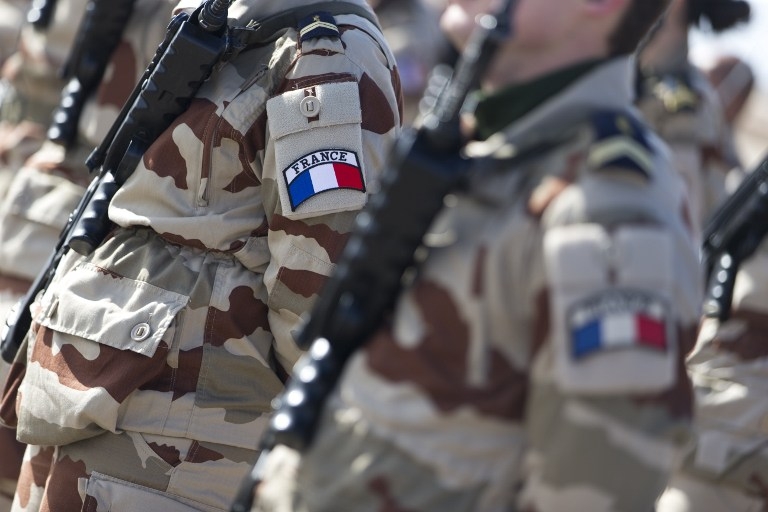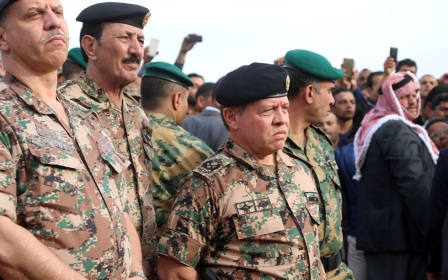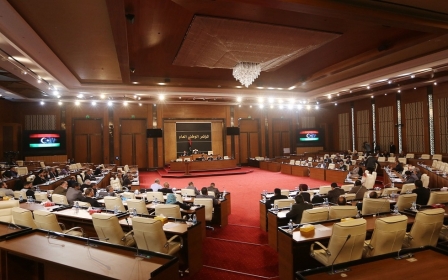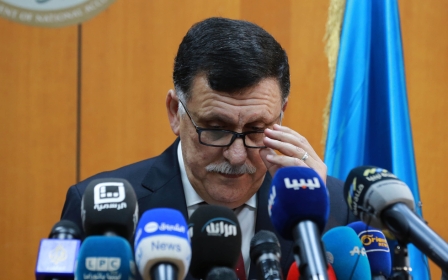France calls for military support for Libya's UN-backed government

France's foreign minister, Jean-Marc Ayrault, has urged the international community to help Libya's unity government if asked, providing military support if necessary.
The country's UN-backed unity government is trying to assert its authority in Tripoli, but the sudden arrival of a new prime minister-designate has drawn fury from the unrecognised authorities in de facto control of the capital.
"Libya is a concern shared by all the countries of the region and beyond," Ayrault said in comments published in a French newspaper on Friday.
"The chaos which reigns there today aids the rapid development of terrorism. It is a direct threat to the region and to Europe."
While Islamic State (IS) militants are being pushed back in Syria and Iraq with the help of international intervention, the group is gaining ground in Libya, the foreign minister warned.
"We must be prepared to respond if the national unity government of [prime minister-designate Fayez] al-Sarraj asks for help, including on the military front," he said.
Asked specifically on the likelihood of military intervention, Ayrault replied: "That will depend on the legal government. To think of launching air strikes outside of the political process is not an option."
Officials in Tripoli on Wednesday demanded that Sarraj leave just hours after he arrived in the capital.
In a televised address, the head of the Tripoli authorities Khalifa Ghweil said Sarraj's government was "illegal", and asked him to leave the capital or to "hand himself in".
But 10 Libyan cities formerly under control of the government in Tripoli on Thursday pledged their support to the UN-backed government, one of the municipalities announced online.
The announcement came in a statement on the official Facebook page of the Sabratha municipality, after a meeting among representatives from the 10 coastal cities in the west of Libya located between Tripoli and the border with Tunisia.
Ayrault said world powers must avoid the mistakes of the past, citing military intervention in Iraq.
"That [action] upset the region and brought about extremism and Daesh," he said, referring to IS by an Arabic name.
Libya has had two administrations since mid-2014 when the militia alliance overran Tripoli, setting up its own authority and forcing the internationally recognised parliament to flee to the country's remote east.
International leaders have called on Libya's political rivals to back the unity government with the US and its European allies threatening action against those who undermine the political process.
Last week, Middle East Eye revealed that British SAS soldiers supported by Jordanian forces were already operating in Libya against IS militants.
The US has also conducted air strikes against IS targets in the country, while Italy has offered to lead a peacekeeping operation in the country if asked to do so by the Sarraj government.
France was among the leading countries involved in the 2011 NATO-led intervention in Libya in support of rebels fighting to overthrow the country's long-term leader Muammar Gaddafi.
But the country collapsed into chaos in the aftermath of the revolution and control of the country is now divided between rival governments in Tripoli and Tobruk, with IS establishing its control over a stretch of coastline around the central city of Sirte.
Middle East Eye propose une couverture et une analyse indépendantes et incomparables du Moyen-Orient, de l’Afrique du Nord et d’autres régions du monde. Pour en savoir plus sur la reprise de ce contenu et les frais qui s’appliquent, veuillez remplir ce formulaire [en anglais]. Pour en savoir plus sur MEE, cliquez ici [en anglais].




